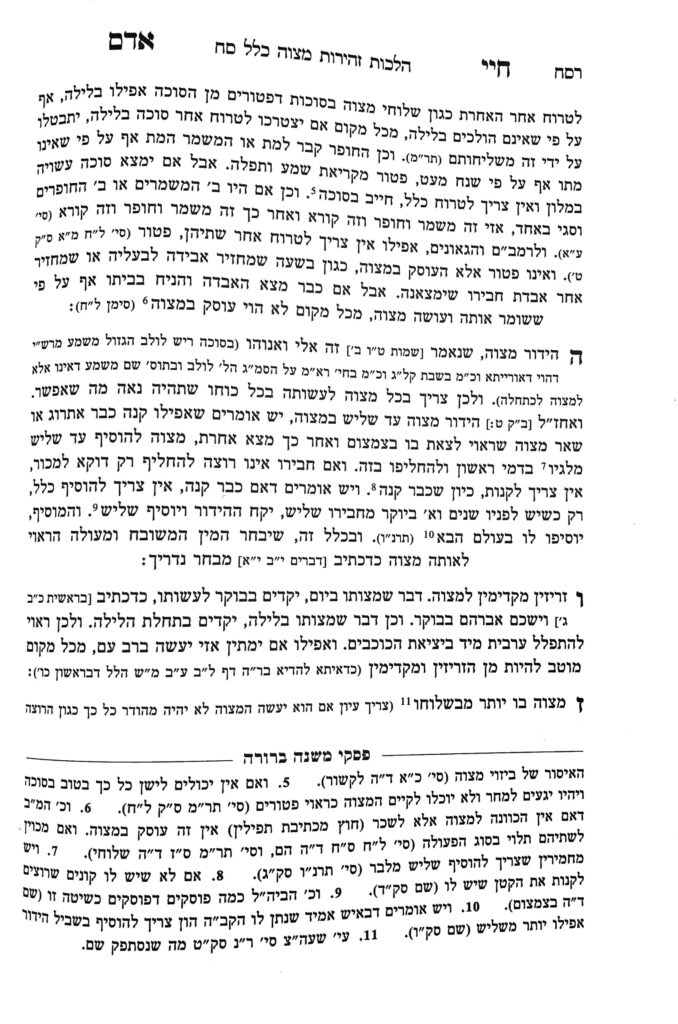We are continuing in siman 7, which discusses the concept of mitzvah bo yoser m’shlucho. Today, we will discuss an important application of this concept.
The sefer Olas Shabbos discusses whether multiple people eating a shabbos seudah together should each preferably make kiddush on their own, or whether one person should make kiddush for everyone. The Olas Shabbos writes that each individual should make their own kiddush, due to the concept of mitzvah bo yoser m’shlucho. This is the minhag of many chassidim. According to this thought process, it is not clear why women do not make their own kiddush either, because they are equally chayav in kiddush as men. Some suggest that regarding a husband and wife, ishto kegufo (the halachic concept that husband and wife are considered one entity) makes it that a husband making kiddush for his wife is not just her shliach, but as if she were making kiddush herself, so it would be unnecessary for her to make her own kiddush. However, this suggestion does not explain why daughters or other single women would not make kiddush.
The sefer Tosfos Shabbos disagrees with the Olas Shabbos. He explains that when one is motzi others with kiddush, the others fulfill their obligation through shome’ah k’oneh. Shomeiah k’oneh is not shlichus. Rather, when the listener engages in listening, it has the halachic equivalence of speech (see more in shiurim 1210, 1211, 1234). If so, having someone else recite kiddush is not shlichus–to which one may argue that mitzvah bo yoser m’shlucho should enjoin one to make their own kiddush–but rather the listener effectively reciting kiddush themselves. This being the case, there is no halachic concern for mitzvah bo yoser m’shlucho. On the other hand, the hiddur of b’rov am hadras melech would enjoin us that one person reciting kiddush on behalf of everyone would actually be preferable. This is the minhag of bnei yeshiva.
There are situations in which a person would like to be mechabed someone else to perform a mitzvah which is incumbent upon them. The Tevuas Shor discusses a situation in which one slaughtered a kosher bird or domesticated animal, and wants to be mechabed someone else to perform kisui hadam. Although the mitzvah is primarily the zechus of the one who performed the shechita, the Tevuas Shor writes that there would often be a guest talmid chochom present, and the minhag was to invite the guest to perform the kisui hadam. We will clarify this tomorrow, be’ezras Hashem.
Summary
A potential application of mitzvah bo yoser m’shlucho regards kiddush. The argument can be made that every person should make their own kiddush, due to the concept of mitzva bo yoser mi’bishlucho. Chassidishe poskim follow this opinion.
Others hold that shomeiah k’oneh alleviates the issue of mitzvah bo yoser m’shlucho, and b’rov am hadras melech would enjoin that one person should make kiddush for everyone. Litvishe poskim follow this opinion.



